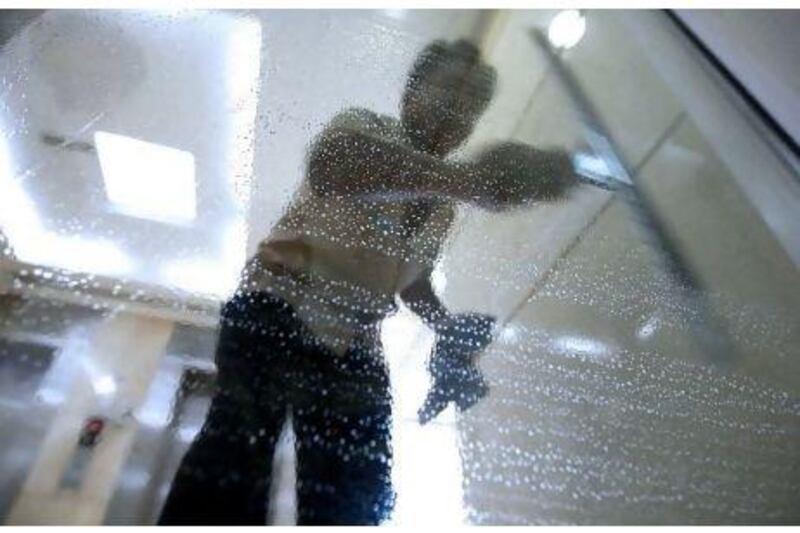With dozens of buildings in Dubai suffering from a lack of maintenance and mounting unpaid fees, estate agents say the emirate's property market could decline further unless the Strata Law is quickly implemented.
While property prices have dropped by an average of 50 per cent over the past two years and the supply of homes and offices has far surpassed demand, new obstacles could threaten any sales recovery in the coming year.
Billy Rautenbach, the managing director of The Property Store agency, said a customer of hers recently moved into a building and soon discovered that he could not open the garage, front entrance or gym. His keycard would not work, and when Ms Rautenbach asked the security guard why, she was told the owner had not paid his maintenance fees.
"Now my client has paid his rent, which was Dh120,000 [US$32,670], and he can't even get to his car," she said. "This kind of thing is not good for the market."
The problem was increasing because the Strata Law - which prescribes how owners jointly pay for the maintenance of all common areas of buildings - is being implemented slowly, Ms Rautenbach said.
Without a homeowners association, it is difficult for a prospective renter to conduct due diligence on whether the owner of an apartment has paid or the building is far behind with maintenance.
"So many investors just see these fees as an extra cost that someone else should pay," Ms Rautenbach said. "Pressure has to be put on the developers to move ahead with implementing the law."
Residents of some buildings have recently discovered signs in hallways and lifts saying that unless balances owed to utility providers are paid, power will be shut off to common areas, including lifts.
At Marina Diamond 2 in Dubai, the balance is more than Dh300,000, and a notice posted this week said the building's developer had received a final notice from the Dubai Electricity and Water Authority that power would be disconnected unless payments were made.
One effect of the slow implementation of the Strata Law is that buildings with shoddy maintenance or large sums in unpaid fees are emptying out as tenants choose not to renew their leases, said Manuela Reis, the manager of residential sales and leasing at the Dubai Marina office of the agency Better Homes.
"At the moment, the problem is limited to individual buildings suffering from tenants moving out and leases not being renewed," she said. "If these issues are not addressed in a timely and proper manner, it will have an increasingly negative impact on the market."
Ms Reis said, however, that timely implementation of the Strata Law could be "a deterrent to this happening since it will provide guidelines and ways to address these situations".
The Strata Law was unveiled in 2008, but a crucial set of guidelines on how to use and interpret it arrived only this April.
Only a small number of homeowner associations have been formed so far - they will take over responsibility for maintenance - that will create the detailed reviews of buildings necessary for the law to work effectively.
An initial deadline for developers to make filings to the Real Estate Regulatory Agency and Dubai Land Department has passed. Another deadline comes on January 13, when developers are supposed to provide owners with all the necessary documentation on their buildings.






